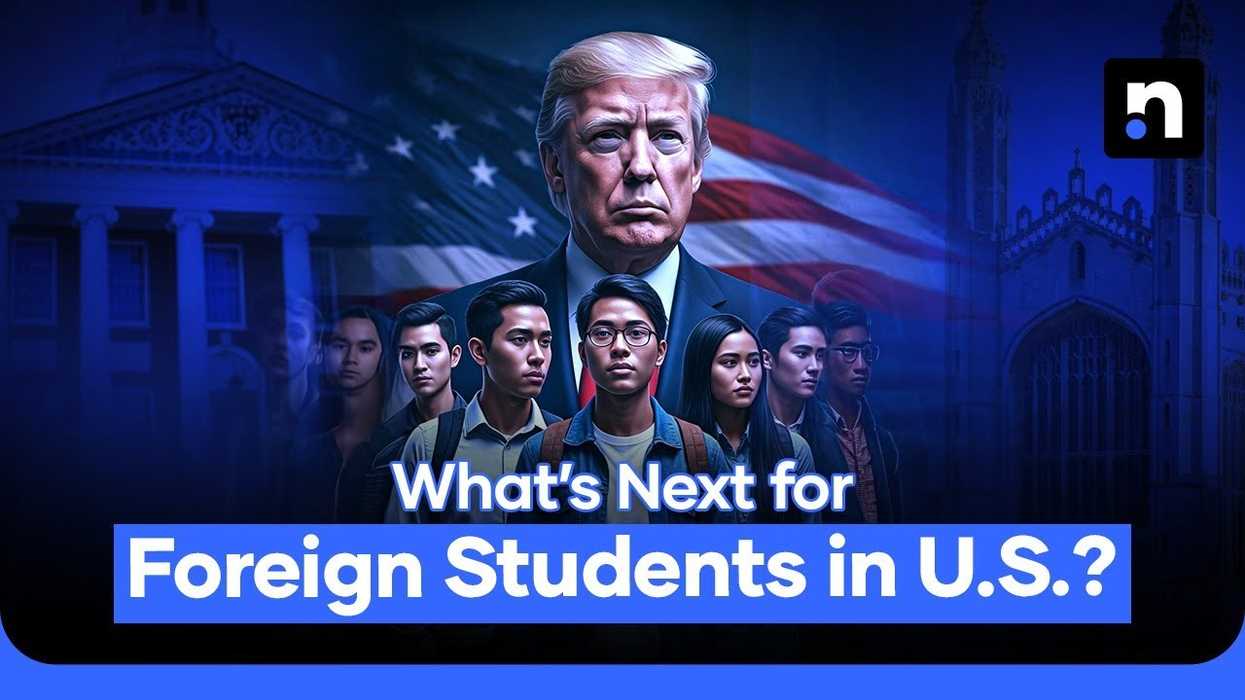$25B at stake with stricter US visa rules targeting international students
Newly announced visa revocation policy appears to be a prelude to even stricter visa measures now unfolding

Gaitty Ara Anis
Correspondent-USA
Gaitty Ara Anis is a seasoned multimedia journalist based in Washington, D.C., she specializes in digital content creation, including writing and video production. Currently, she represents Nukta as its correspondent in the USA. She has been previously associated with Voice of America, Dawn, CNBC, PTV World and Geo News over the past twenty years.
Li Xiu Ying, 24, a Chinese foreign exchange student in the U.S., is shaken and fearful.
Her anxiety stems from a recent announcement by Secretary of State Marco Rubio, who said Chinese students in the U.S. could face aggressive visa revocations based on their political affiliations.
Ying, whose late father was a political worker in Beijing, is currently studying acting at the prestigious New York School of Performing Arts. Now, she fears that her father’s long-past connection to the Communist Party of China could derail her future.
“I mean, there is single-party rule in China. What am I supposed to do about it?” she said. Based on the latest signals from the White House, she added, it feels like anyone living in China today can be singled out — a dangerous premise to hold.
Ying is one of more than 270,000 Chinese students studying in the U.S.
Not an isolated move
The newly announced visa revocation policy may seem like an isolated move, but it follows a series of escalating actions, including barring Harvard University from enrolling foreign students and imposing a blanket pause on all student visa categories. Together, these appear to have been a prelude to even stricter visa measures now unfolding.
Muqtadar Khan, a political science professor at the University of Delaware, called the recent moves “a crackdown on America’s liberal values.”
“It all started with Columbia University, where widespread pro-Palestine protests were held. Then the focus shifted to Harvard, which has pushed back against the government’s funding cuts,” Khan told Nukta.
"Initially, it was about curbing any kind of antisemitic activities on campuses, but now it’s more about controlling liberal values. Most U.S. universities support and promote liberal or left-leaning ideologies and uphold freedom of speech,” he said.
Harvard has challenged the enrollment issue in court and secured temporary relief. But the newly announced policy of extensively vetting the social media accounts of future student visa applicants is raising further concerns.
Over 1.1M foreign students
According to the Institute of International Education, over 1.1 million foreign students were enrolled in undergraduate and graduate programs across the U.S. last year, making up about 5% of the total student population.
India topped the list with more than 300,000 students, followed closely by China. Together, students from just these two countries contributed over $25 billion to the U.S. economy during the 2023-24 academic year.
The same figures show that almost 11,000 students of Pakistani origin are enrolled at U.S. universities.
The abrupt shift in student visa policy has affected not only students already inside the U.S. but also those preparing to apply.
Samir Malik, a recent medical graduate in Islamabad, Pakistan, is pursuing the Education Commission for Foreign Medical Graduates (ECFMG) certification, an expensive and competitive program that fast-tracks medical graduates into U.S. residency programs.
“Applying for residency programs is not a simple process - it takes years to prepare just to be able to apply,” Malik told Nukta. Pursuing a higher medical degree as a foreign student is costly. “By the time you get to the part where you are finally matched - as the acceptance into a residency program is called - you’ve already spent at least 2 million PKR ($7,000),” he said.
Stricter visa policies
The crackdown on illegal immigrants and push for stricter visa policies were central to President Donald Trump’s campaign last year. His voter base has long expressed frustration over limited job opportunities for locals. While the validity of these concerns is debatable, Khan said they are not entirely baseless.
“Many professionals who come here as students later shift into mediocre jobs. They are not high-end professionals by any standard but still manage to work around the system,” he explained. This loophole, he added, is one reason why the H-1B visa category has become controversial, especially after thousands of individuals, largely from India, were caught misusing it. Last week, the U.S. State Department imposed a ban on certain travel agents and individuals involved in related visa fraud.
The Chinese government has already voiced strong objections to its students being singled out under stricter rules, but for those currently in the U.S., this brings no immediate relief.
Meanwhile, Li Xiu Ying’s future hangs in limbo.
“I wanted my family to be proud of my work. Right now, I am only making them worried,” she said.








Comments
See what people are discussing